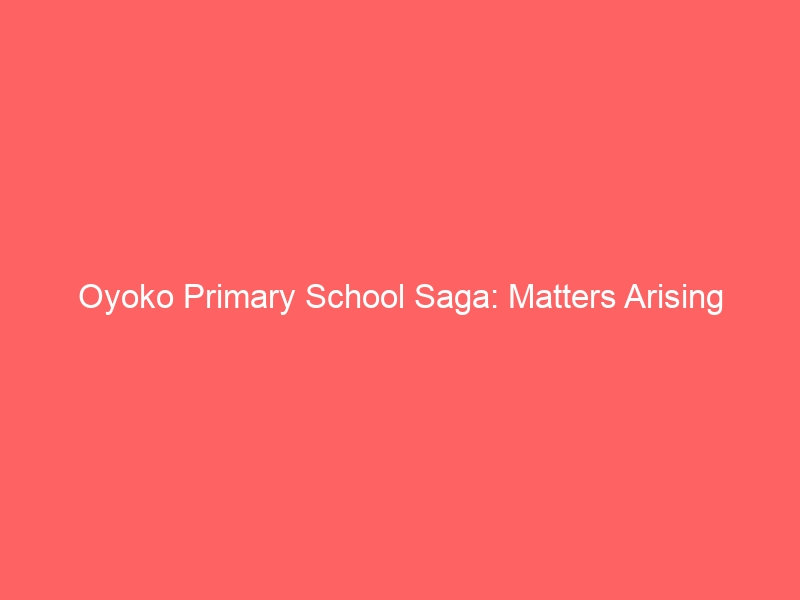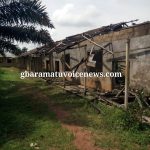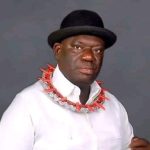Oyoko Primary School Saga: Matters Arising
By Jerome-Mario Chijioke Utomi
The barrage of reactions and commentaries that trailed the recently published disturbing pictures that drew the attention of the Delta state government to the visibly distressed structures, dilapidated classrooms with fallen ceilings, windows and doors at Oyoko Primary School, Abavo, Ika South Local Government Area of the state, has again given credibility to the belief that a free press is not a privilege but an organic necessity in a great society.
For without reliable and intelligent reporting, the government cannot govern. For there is no adequate way in which it can keep itself informed about what the people of the country are thinking, doing and needing.
ALSO READ: Oyoko Primary School: An Avoidable Saga
Despite this new awareness, what has however, caused concern among deltans with critical interest as well as qualifies the development in the state’s education sector as a crisis, is the fact that before the dust raised by the ‘deplorable, inhuman and gory account of Oyoko School condition could settle, another was up. This time, it has to do with an eye witness account on the poor state of a secondary school in Abavo town -St Charles College.
For clarity, St Charles College, he said, was originally built, owned and operated by the catholic mission in the state. The school has to its credit produced prominent citizens of Ika nation extraction and Nigeria as a whole. Also remarkable is the fact that the college was at a time the only secondary school within the Abavo clan that could boast of boarding facilities. Those were the good old days.
The School like other missionary schools in the state were thereafter seized by then administrations in the state, mismanaged, starved of funds, stripped of learning convenience, ‘killed’ and the carcass finally returned to the original owners by the Dr Emmanuel led administration in the state without any form of financial mitigation or infrastructural remediation.
The commentator noted with nostalgia that ever since the government led its cold hands on St. Charles, the centre can no longer hold and things fall apart.
Even the new owner (the mission) is currently in search of courage needed to tackle the degree of infrastructural decay in the school. The once celebrated hostel facility that previously housed students who are today not just prominent but great men in the society is presently without a roof, lying lonely, fallow and deserted. Same fate befell the school Laboratory building until recently when the old boys of the school took it upon themselves and had the laboratory building roofed. But even with that feat, the Science laboratory cannot boast of a single test tube.
This state of affairs he lamented is in sharp contrast with Anambra state experience under Governor Peter Obi administration who first of all funded, equipped with state of the art ICT learning facilities, provided school buses before he seamlessly handed over the school to the missions.
As the author, what is undeniably my concern, in addition to the above awareness, is not the commentator’s admission that the decay in majority of schools (primary and secondary alike) did not start with the present administration, rather, it is his declaration that if the level of decay in previous administrations were considered a challenge, what is happening presently should be characterized as a crisis.
To further consolidate on his position, he said; Governor Okowa’s mother is from the Abavo community. For that reason, if the Governor could abandon projects and neglect schools in the community where his mother hails from, that will give an insight to what is happening in other parts of the state.
In May 2015, he added, Governor Ifeanyi Okowa assumed office without doing anything substantial to save these financially emasculated schools returned to the missionaries or serve the people; forgetting that governance is continuum. The Governor at the beginning of this year (2022) promised these mission schools some money, but such promises like many others have gone with political winds. We are particularly unhappy that Governor Okowa abandoned his people. He concluded.
Let’s assume the state government ignored St. Charles because it has been handed over to the mission and now not directly under the preview of the government. It will again necessitate the question as to how well has the government treated its own secondary schools under its watch?
To answer this perennial question, the findings by this study/research along with collaboration from many other investigations using different procedures, suggests that both government secondary schools and the recently handed over mission schools share ‘equal sorrows’, virtues and attributes.
Similarity in structural deficiencies is a common denominator.
Take as an illustration, St Anthony College, Ubulu-Uku, Aniocha South Local Government Area of the state, is a wholly owned government Model school. But there is nothing model or modern about the school. The classes are far from being 21st century learning environment compliant. The few new structures found in the school are attributable to personal efforts of good spirited individuals and the School Old Boys Association.
The school hostel previously reputed for housing over three hundred students is now a show of itself- infested with rodents and reptiles-these dangerous animals jostle for space with students. The environment is laced with dilapidated structures, falling windows and surrounded by overgrown bushes. Even the promises made by the Secretary to the State Government (SSG) have not appreciably changed St. Anthony College’s misfortune or changed their narratives, he concluded.
Certainly, there is in my view reason to believe that these commentators may not be alone in this line of belief.
For instance, Ika Weekly Newspaper, a well respected community Newspaper based in Agbor, Ika South Local government Area of the state, in its recent editorial comment entitled; CALLING ON GOV. OKOWA TO ADDRESS THE SORRY STATE OF OYOKO PRIMARY SCHOOLS ABAVO, IKA SOUTH LOCAL GOVERNMENT AREA OF DELTA STATE, among other concerns stated’,’ no learning takes place in such an environment. Yes, the students may gather at that point called Oyoko Primary School but we hold the opinion that evidence on the ground cannot qualify or ascribe such an environment as conducive for learning. More pathetically, that such a ‘learning environment’ still exists in the state and in the community where the Governor’s mother hails from, is a painful experience. The Newspaper concluded.
Definitely in my view, there is a funding challenge in the education sector not just in the state but the nation as a whole. Notwithstanding, this piece believed and still believes that in many ways, the present administration in the state may have a sincere desire to move the nation forward, but there is one militating factor; there is no clear definition of the problem as it concerns the education sector, the goals to be achieved, or the means chosen to address the problems. This is the only possible explanation for this situation.
As an incentive to solve this lingering challenge, the state must depart from the cosmetic approach and get involved with more work and make more reforms. They must look for ways to develop/implement plans and policies that will lead to proper funding of the education sector in the state as any development plan without access to quality education is a sheer waste of time.
Also, drawing a lesson from Anambra state experience under Peter Obi’s administration will be considered a right step taken in the right direction.
This piece holds the opinion that the state government needs to do this not for political reason(s) but for the survival of our democracy and the future of our children.
Utomi Jerome-Mario is the Programme Coordinator (Media and Public Policy), Social and Economic Justice Advocacy (SEJA), A Lagos-Based Non Governmental Organization (NGO).And could be reached via Jeromeutomi@yahoo.com /08032725374.












